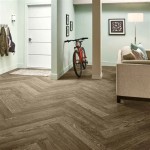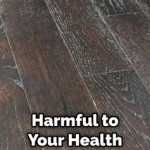Garage Tile Flooring Reviews: A Comprehensive Guide
Garage flooring often endures significant wear and tear. From vehicular traffic and dropped tools to chemical spills and temperature fluctuations, the garage environment presents a challenge for traditional flooring options. Garage tile flooring has emerged as a popular solution, offering durability, aesthetics, and ease of maintenance. This article provides a comprehensive review of garage tile flooring, examining the different types, assessing their strengths and weaknesses, and offering insights to aid in informed decision-making.
Selecting the appropriate garage tile requires careful consideration of various factors, including the anticipated use, budget constraints, and desired aesthetic. Understanding the available materials and their respective performance characteristics is crucial for a successful installation.
Types of Garage Tile Flooring
The garage tile market offers a diverse array of materials, each possessing unique attributes. Common types include interlocking tiles, peel-and-stick tiles, and traditional ceramic or porcelain tiles. Each type caters to different needs in terms of installation, durability, and budget.
Interlocking Tiles: These tiles are typically constructed from PVC (polyvinyl chloride) or polypropylene and are designed to connect seamlessly without the need for adhesives. Their interlocking mechanism allows for a floating floor system, which can be beneficial in garages with minor imperfections in the concrete slab. Interlocking tiles are known for their ease of installation and removal, making them a suitable option for DIY projects.
The material composition of interlocking tiles often includes additives to enhance their resistance to chemicals, oils, and UV degradation. This makes them well-suited for the garage environment, where spills and exposure to sunlight are common. Furthermore, the textured surface of many interlocking tiles provides slip resistance, improving safety in the garage.
However, interlocking tiles can be susceptible to damage from heavy point loads if the underlying concrete slab is uneven. Sharp objects can also potentially puncture or scratch the surface. While individual tiles can be replaced if damaged, it's important to consider these limitations when evaluating this type of flooring.
Peel-and-Stick Tiles: Also known as self-adhesive tiles, these tiles feature an adhesive backing that allows them to be directly applied to the concrete slab. This installation method is relatively straightforward, requiring minimal tools and expertise. Peel-and-stick tiles are often a more economical option compared to other types of garage flooring.
The primary advantage of peel-and-stick tiles is their ease of installation. The adhesive backing simplifies the process, allowing for a quick and relatively mess-free installation. This can be a particularly attractive option for homeowners seeking a budget-friendly and DIY-friendly flooring solution.
However, the adhesive bond of peel-and-stick tiles can be affected by moisture and temperature fluctuations. Over time, the adhesive may weaken, leading to tiles lifting or shifting. Proper surface preparation is critical for ensuring a strong and durable bond. The concrete slab must be clean, dry, and free of any contaminants before installation. Furthermore, peel-and-stick tiles may not be as resistant to heavy impact or chemical spills as other types of garage flooring.
Ceramic and Porcelain Tiles: These tiles are a traditional flooring option that can also be used in garages. Porcelain tiles, in particular, are known for their durability and resistance to moisture, making them a suitable choice for environments prone to spills and dampness. Ceramic and porcelain tiles require the use of mortar and grout for installation, which is a more involved process compared to interlocking and peel-and-stick tiles.
The primary advantage of ceramic and porcelain tiles is their exceptional durability and resistance to wear and tear. These tiles can withstand heavy vehicular traffic, dropped tools, and other common garage hazards. Porcelain tiles, in particular, are highly resistant to moisture penetration, making them ideal for garages that may experience water exposure.
However, the installation of ceramic and porcelain tiles is more complex and requires specialized tools and expertise. The use of mortar and grout necessitates careful planning and execution to ensure a level and aesthetically pleasing surface. Furthermore, ceramic and porcelain tiles can be more expensive than other types of garage flooring, and the installation process can be time-consuming.
Key Considerations Before Installing Garage Tile Flooring
Prior to installing any type of garage tile flooring, several factors should be carefully considered to ensure a successful and long-lasting installation. These considerations include surface preparation, drainage, and the anticipated level of traffic and use.
Surface Preparation: Proper surface preparation is paramount for all types of garage tile flooring. The concrete slab must be clean, dry, and free of any contaminants, such as oil, grease, and dust. Any cracks or imperfections should be repaired before installation to ensure a level and stable surface. This may involve filling cracks with a concrete patching compound and grinding down any high spots.
For interlocking tiles, a relatively clean and level surface is sufficient. However, for peel-and-stick tiles, a more thorough cleaning and preparation process is required to ensure a strong adhesive bond. This may involve etching the concrete surface with a mild acid solution to improve adhesion. For ceramic and porcelain tiles, a level and properly prepared substrate is essential for a successful installation. This may require the application of a self-leveling compound to correct any significant imperfections in the concrete slab.
Drainage: Garages are often exposed to water from rain, snow, and vehicle washing. Proper drainage is essential to prevent water from pooling on the floor and potentially damaging the flooring or the concrete slab. If the garage floor does not have adequate drainage, it may be necessary to install a drainage system before installing tile flooring. This could involve creating a slight slope in the floor to direct water towards a drain or installing a French drain.
Interlocking tiles, due to their raised profile, can allow water to flow underneath them, which can be beneficial for drainage. However, it's important to ensure that the water can evaporate or drain away from the edges of the tiles. Peel-and-stick tiles are more susceptible to damage from standing water, as the adhesive bond may weaken over time. Ceramic and porcelain tiles are relatively impervious to water damage, but proper grouting is essential to prevent water from seeping underneath the tiles.
Traffic and Use: The anticipated level of traffic and use should be considered when selecting garage tile flooring. For garages that will be used primarily for parking vehicles, durable and impact-resistant tiles are essential. For garages that will be used as workshops or hobby spaces, chemical resistance and ease of cleaning are important factors. The weight of vehicles and equipment should also be considered when selecting the thickness and material of the tiles.
Interlocking tiles offer good impact resistance and can withstand heavy vehicular traffic. Peel-and-stick tiles are generally not recommended for high-traffic areas or areas where heavy equipment will be used. Ceramic and porcelain tiles offer excellent durability and can withstand heavy loads and frequent use. The choice of tile should be based on a careful assessment of the garage's intended purpose and the potential for wear and tear.
Assessing Performance Characteristics of Garage Tile Flooring
Evaluating the performance characteristics of different garage tile flooring options is crucial for making an informed decision. These characteristics include durability, chemical resistance, slip resistance, and aesthetics.
Durability: Durability is a primary consideration for garage flooring. The tiles must be able to withstand heavy vehicular traffic, dropped tools, and other common garage hazards. The durability of a tile is often determined by its material composition and thickness. Porcelain tiles are generally considered the most durable option, followed by interlocking tiles and then peel-and-stick tiles.
The American Society for Testing and Materials (ASTM) provides standards for testing the durability of flooring materials. These standards include tests for abrasion resistance, impact resistance, and compressive strength. Consulting these standards can provide valuable insights into the durability of different tile options. A tile's PEI (Porcelain Enamel Institute) rating, if available, can also indicate its resistance to surface abrasion.
Chemical Resistance: Garages are often exposed to a variety of chemicals, including oil, gasoline, antifreeze, and battery acid. Garage tile flooring should be resistant to these chemicals to prevent staining, discoloration, and degradation of the material. Interlocking tiles made from PVC or polypropylene are generally resistant to most common garage chemicals. Porcelain tiles are also highly resistant to chemicals, while ceramic tiles may be more susceptible to staining or damage. Peel-and-stick tiles may vary in their chemical resistance depending on the type of adhesive used.
Before installing garage tile flooring, it is advisable to test the tiles' resistance to specific chemicals that may be present in the garage. This can be done by applying a small amount of the chemical to a sample tile and observing any changes in the tile's appearance or texture over time.
Slip Resistance: Slip resistance is an important safety consideration for garage flooring. The tiles should provide adequate traction to prevent slips and falls, especially when the floor is wet or oily. Textured tiles, such as those with a raised pattern or a matte finish, generally offer better slip resistance than smooth, glossy tiles. Interlocking tiles often feature textured surfaces specifically designed to enhance slip resistance.
The slip resistance of flooring materials is typically measured using a coefficient of friction (COF) test. A higher COF indicates greater slip resistance. The Americans with Disabilities Act (ADA) recommends a COF of 0.6 or higher for accessible surfaces. When selecting garage tile flooring, it is advisable to choose tiles with a COF that meets or exceeds this recommendation.
Aesthetics: While functionality is paramount, aesthetics also play a role in selecting garage tile flooring. Tiles are available in a wide range of colors, patterns, and textures to complement the overall design of the garage. Interlocking tiles offer a variety of styles, including diamond plate, coin pattern, and ribbed designs. Ceramic and porcelain tiles can mimic the look of natural stone or wood. Peel-and-stick tiles are available in a wide range of colors and patterns to suit different tastes.
The choice of aesthetics is ultimately a matter of personal preference. However, it is important to consider the overall design of the garage and choose tiles that complement the existing décor. Lighter-colored tiles can brighten up a garage and make it appear larger, while darker-colored tiles can help to conceal dirt and stains.

We Review Newage Lvt Garage Tiles Why They Defy The Rules All Floors

Reviews For Swisstrax 12 In W X L Slate Gray Diamondtrax Home Polypropylene Commercial Garage Flooring 10 Tile Pack Sq Ft Pg 1 The Depot

Reviews For Swisstrax 12 In W X L Slate Gray Diamondtrax Home Polypropylene Commercial Garage Flooring 10 Tile Pack Sq Ft Pg 1 The Depot

A Diy Truelock Hd Garage Tile Project Review All Floors

We Reveal The Best Garage Tiles

Review Garage Flooring Llc Floor Tiles

Reviews For Swisstrax 12 In W X L Slate Gray Diamondtrax Home Polypropylene Commercial Garage Flooring 10 Tile Pack Sq Ft Pg 1 The Depot

Perforated Garage Floor Tiles Diy Interlocking System Mesh Drain

A Porcelain Tile Garage Floor Long Term Review All Floors

1 Year Follow Up Review On Garageflooringinc Nitro Diamond Garage Flooring Tiles
Related Posts








